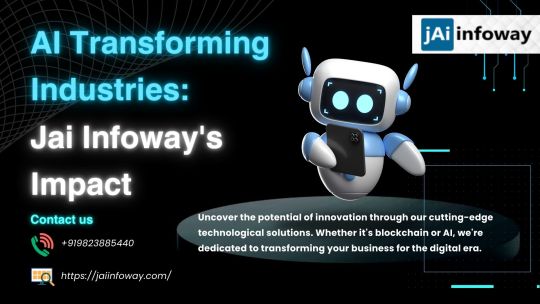#intelligent invoice processing
Explore tagged Tumblr posts
Text
Beyond Words: Unveiling the True ROI of Intelligent Document Processing (IDP)
Across industries—from manufacturing to insurance—businesses are under pressure to streamline operations, enhance customer experiences, and boost employee productivity, all while keeping costs in check. Intelligent Document Processing (IDP) is transforming how organizations handle documents by leveraging AI to automate data extraction and processing. But with any new technology, the big question remains: Is it worth the investment?
The Growing Importance of IDP
Traditional document handling is often plagued by delays, errors, and inefficiencies that frustrate employees and slow down critical business functions. IDP eliminates these bottlenecks by using AI to classify, extract, and validate information with speed and accuracy. Despite its advantages, some enterprises remain hesitant, uncertain about the true return on investment (ROI).
A structured approach to evaluating IDP’s financial and operational impact can help decision-makers build a solid business case for adoption. Understanding both the direct cost savings and broader benefits—like improved compliance, reduced risk, and enhanced decision-making—is key.
Measuring IDP’s ROI: A Data-Driven Approach
To bridge this knowledge gap, experts have developed a comprehensive framework that outlines key cost and benefit categories associated with IDP adoption. This approach enables businesses to estimate potential ROI through real-world applications, such as:
Invoice Processing – Faster, more accurate processing that reduces manual effort.
Insurance Claims Handling – Quicker claim settlements with fewer errors.
Customer Onboarding – Smoother, automated workflows that enhance user experience.
For organizations looking to maximize their IDP investments, understanding market trends and success factors is essential. Explore the latest insights and a proven ROI assessment framework to see how businesses are leveraging IDP for measurable gains.
About Us
IntentTech Insights™: Your Tech World Navigator
Uncharted waters demand a seasoned guide. We excel in providing intent-based technology intelligence to navigate complex technology landscapes, such as IT, cybersecurity, data storage and networks, SaaS, Cloud, Edge, IoT, AI, HR technologies, Contact Center software, Fintech, Martech, and 150+ other domains.
IntentTech Insights™ is your compass through the ever-evolving tech landscape. We are more than just a publication; we are your strategic partner in navigating the complexities of the digital world.
Our mission is to deliver unparalleled insights and actionable intelligence to tech professionals and enthusiasts alike. We delve deep into the latest trends, technologies, and innovations, providing comprehensive coverage that goes beyond surface-level reporting.
#Intelligent Document Processing#automate data extraction#Invoice Processing#Insurance Claims Handling#Customer Onboarding
0 notes
Text
In the fast-paced world of finance, technological evolution is the key to staying competitive. Enter the era of Invoice Processing Automation a game changer for businesses in the USA.
#texas#finance#robotic process automation services#accounts payable invoice automation#artificial intelligence
0 notes
Text
Invoice Automation Partner To Accelerate Invoice Processing

Effective invoice processing is crucial for modern businesses to ensure financial management. It involves various intricate and time-consuming tasks that demand additional workforce and technology. These tasks comprise capturing invoice data, validating the information, and recording the specifics in financial systems.
The invoice processing procedure can become more complex, especially when dealing with high volumes of invoices, which not only requires expertise but also meticulous attention to ensure accuracy and regulatory compliance.
One solution is to have an in-house intelligent invoice processing system. But, having an in-house intelligent invoice processing system can be more complicated for various reasons, including the need for extensive infrastructure, specialized skills, and continuous maintenance costs. Additionally, it can also divert the company’s focus on core business operations.
The other option is to outsource the invoice processes. Outsourcing the entire invoice processing procedure to a third-party vendor can be a more efficient and cost-effective solution. The vendor can bring their expertise, technology, and experience to the table, streamlining the process and ensuring regulatory compliance. This also eliminates the need for the company to invest in extensive infrastructure and specialized skills, allowing them to focus on their fundamental business. Outsourcing the entire process can assist businesses in enhancing efficiency without incurring additional expenses.
Why Businesses Should Consider Outsourcing Invoice Processing?
Running a business is a challenging task that requires attention to various aspects such as marketing, sales, product development, manufacturing, and operations. However, one crucial area that often gets overlooked is invoice processing, which can be a time-consuming and complex task.
Failure to pay due attention to invoice processing can be a huge mistake, resulting in delayed payments, damaged vendor relationships, and financial penalties. Fortunately, businesses can turn to invoice outsourcing as a solution.
1. Save Time and Energy
Time is valuable for any business owner or manager, and invoice processing can consume a lot of this resource. By outsourcing this task to a qualified provider, businesses can free up valuable time and energy to focus on other areas of their operations.
Outsourcing invoice processing alleviates the burden of managing this task, increases productivity, and potentially boosts profits. With more time for strategic initiatives, businesses can identify new opportunities, improve customer satisfaction, and strengthen relationships with vendors and stakeholders.
2. Process Invoices Accurately and on Time
Outsourcing of invoice processing ensures that your vendor invoices are processed accurately and promptly. Invoice processing service providers typically have experienced professionals who handle this work efficiently and while implementing quality control measures to guarantee accuracy. Therefore, outsourcing your invoice processing is the way to go if you want to eliminate errors and delays.
Moreover, outsourcing of invoice processing also helps you get your invoices processed faster through access to technology and resources. Therefore, an invoice processing service can greatly assist you if you need your invoices processed urgently.
3. Save Money by Reducing the need for In-house Staff
If you process your invoices in-house, you may find that your accounting and administrative costs increase due to additional staff and infrastructure requirement. However, by outsourcing this task to a provider with expertise in invoice processing, you can reduce costs by up to 50%.
While you won’t need to hire and train additional staff to handle this task; you may also reduce your requirement of other support staff. With these savings, you can redirect your resources to other critical business areas, such as product development or marketing.
4. Streamline And Simplify Your Workflow
Outsourcing invoice processing to a specialized team simplifies your business operations, leading to smoother transactions and more efficient financial management. This results in a hassle-free payment process for your vendors while you enjoy streamlined bookkeeping and accounting tasks. By eliminating unnecessary steps in the invoicing process, you save valuable time and effort and gain better control over your finances.
5. Help you Stay Organized and In Control of Your Finances
Outsourcing invoice processing gives you access to valuable tools and resources that simplify your financial management. For instance, reputable providers typically use software solutions that help you track your invoices and payments efficiently. Furthermore, invoice processing companies often offer online portals that allow you to monitor your vendor invoices and manage your bank accounts more effectively. These portals enable you to stay informed and in control of your financial data, which helps you make better business decisions.
6. Maximize ROI by Outsourcing Complex Tasks
For small to medium-sized businesses, achieving a positive return on investment (ROI) in their day-to-day operations is challenging. However, outsourcing this task to a qualified company provides numerous benefits and a greater potential for profitability. By leveraging the expertise and resources of an experienced provider, businesses optimize their ROI, operate more efficiently, and achieve greater success.
7. Gain Access to Expertise and Resources
Outsourcing invoice processing is an effective way for businesses to access specialized knowledge and resources they may not have in-house. This helps to level the playing field and allows smaller businesses to compete with larger enterprises.
Working with a team of experienced professionals who understand the nuances of invoice processing is a significant advantage. They provide valuable insights and best practices to help ensure vendor invoices are processed accurately and efficiently, allowing you to focus on other critical business areas.
Criteria for Evaluating an Outsourcing Partner
So you’re considering outsourcing, which is great! It can definitely help save your money and improve efficiency. But with so many options, knowing who to trust with your critical business functions can be tough.
You want to find an outsourcing partner that can hit the ground running in just a few weeks and has the experience, skills, and knowledge to handle your needs. Of course, you also need them to be reliable, affordable, and trustworthy. It’s a lot to consider, but finding the right partner can make all the difference!
When evaluating your outsourcing partner, your primary focus is the vendor’s ability to meet your requirements. Below are some of the criteria you should consider.
While identifying the reputation of the outsourcing partner, businesses should consider:
Experience and expertise in invoice processing operations
Industry knowledge and understanding of business requirements
Track record of quality performance and customer satisfaction
Scalability and flexibility to meet evolving business needs
Availability of advanced technology and automation capabilities
Competitive pricing and cost savings
Compliance with regulatory requirements and data security standards
Communication and Collaboration are critical factors in selecting an outsourcing partner as it ensures business requirements are met, and expectations are managed. Collaboration between the business and the outsourcing partner can also help identify improvement areas and optimize invoice processing operations. Identifying the tech solution needs to consider the following factors:
Integration capabilities with existing software and systems
Ability to extract data from various invoice formats
Accuracy and speed of data extraction and processing
Customization options to meet unique business needs
User-friendliness and ease of use
Availability of support and training resources
Looking for an IDP solution that ticks all the right boxes? Look no further than DocVu.AI! With DocVu.AI, you’ll get all the features to streamline your invoice processing without sacrificing speed or accuracy. Plus, you’ll stay on top of all the latest regulatory requirements, ensuring compliance every step of the way.
The best part? DocVu.AI offers unparalleled experience, expertise, scalability, flexibility, and compliance criteria. So why wait? Choose DocVu.AI for all your invoice processing needs today!
But how and why is DocVu.AI the best invoice processing outsourcing partner? Here are a few of the benefits and capabilities of DocVu.AI to affirm that it is the right outsourcing partner.
Benefits – Drive a More Efficient Invoicing Process with DocVu.AI
Breakdown silos with seamless integration
DocVu.AI understands the importance of seamless integration with your business-critical systems. That’s why we offer pre-packaged connectors and APIs that allow you to connect to your workflows and data easily. With our software, you integrate with any ERP system effortlessly and use our standard connectors for popular brands such as Microsoft Dynamics, SAP 4/HANA, Coup, NetSuite, and Oracle® EBS. You trust us to ensure your invoice processing is integrated smoothly and efficiently with your existing systems.
Automate Document Processing with AI
DocVu.AI offers an AI-powered solution that digitizes, classifies, and extracts data from invoices in real-time. Our purpose-built AI can handle structured and unstructured invoice data, making it easy to process multi-page invoices and large batches quickly and accurately.
Future proof your business and AP functions
DocVu.AI empowers your accounts payable function with critical business insights promptly. By automating your invoice processing, we accelerate the flow of information and provide you with the necessary data to make informed decisions about your cash management, working capital management, and overall business health. Our intelligent platform leverages real-time data extraction and classification, enabling you to access the insights you need to drive strategic decision-making easily. With DocVu.AI, you can say goodbye to slow, manual processing and hello to streamlined and informed decision-making.
Capabilities – World-Class Invoice Automation
Organizations that work like tomorrow use DocVu.AI intelligent automation to transform their invoicing process outsourcing and realize best-in-class performance.
Multi-Channel Invoice Capture
DocVu.AI handles invoices coming from various channels, including XML format, scanned documents, paper-based invoices, and PDF files. No matter how your suppliers choose to send their data, we’ve got you covered with our advanced AI-powered solution. We’ll process your invoices quickly and accurately, regardless of the format, so you can focus on running your business.
Purpose-Built AI
DocVu.AI uses AI to emulate human thinking and problem-solving. This allows our platform to understand various invoice layouts and locate the necessary information, regardless of the format the data is in.
Electronic Invoicing
DocVu.AI helps you keep up with the increasing demand to adopt electronic invoicing in compliance with global mandates. Our solution is designed to support the processing of both structured and unstructured data in any format, including electronic invoices.
Workflow Automation
DocVu.AI handles your approval workflows and exceptions seamlessly with our intelligent automation. It automatically routes exceptions for review while keeping a detailed data trail of all handoffs between people and automation. This ensures that your approval workflows are managed efficiently and effectively without any manual intervention required.
KPI/SLA Management
DocVu.AI provides you with the ability to track and manage key performance indicators (KPIs) and service level agreements (SLAs) associated with your invoicing process. By doing so, you gain valuable insight into how work is being done, where money is being spent, and why. With DocVu.AI, you’ll have the tools you need to optimize your invoicing process and improve overall business performance.
ERP Integration
DocVu.AI offers out-of-the-box integration to seamlessly route validated data into your existing ERP systems. This integration not only saves you time and effort but it also positively impacts your ROI without requiring expensive custom integration projects. With DocVu.AI, you easily and efficiently integrate your invoice processing with your existing systems, allowing you to focus on driving business success.
0 notes
Text
Yakut’s Commission Sheet 2025
[OPEN]

Finally made a brand new commission sheet!! I really like the way it turned out, and if I spot any mistake now I Will cry myself to sleep, because GODAMN it took fucking 12 hours to make this.
Transcript, T.o.S., and other important information under the cut!!
Yakut Arts Commission Sheet
Sketch
Headshot - $5
Bust - $7
Half body - $10
Full body - 15
Line Art
Headshot - $17
Bust - $22
Half body - $28
Full body - $36
Flat Color
Headshot - $20
Bust - $26
Half body - $32
Full body - 45
No line art: + $5,50
Cel Shaded
Headshot - $30
Bust - $36
Half body - $42
Full body - $55
No line art: + $15,50
Soft shaded
Headshot - $46
Bust - $52
Half body - $64
Full body - $76
No line art: + 25,50
Detailed
Headshot - $60
Bust - $70
Half body - $90
Full body - $130
Other stuff:
More characters: + %50 of the price per character
Background: + %70 of the price
Complex design: + %15 - %30 of the price
Hard to draw: + %10 - %40 of the price
Currencies that I accept:
$ - United States Dollar (USD)
€ - Euro
R$ - Brazilian Real (BRL)
Payment via:
PayPal
Stripe
PIX
* All the prices are the same, no matter the currency. If you want a $20 Flat Color Headshot but only use euro, then you will pay €20;
* If you are american or european, you CANNOT pay in BRL;
* While PayPal is the most popular and most used option, I highly recommend Stripe, because you don’t need an account to pay and I can safely send you an invoice via e-mail.
Prices before and after comparison:

I will draw:
Furry, Anthro, Feral, Animals, Creatures, Fanart, Fruit/Candy/Regular gore, NSFW, kinks, suggestive art, Complex designs, Partially mecha, Horror, Weapons/Armor, Cosplay, Magic, Skeletons/bones, Latex, Copyrighted characters, and others.
I won’t draw:
Humans, Extremely heavy gore, Fully mecha (Synths are an exception), Offensive art, Some fetishes, Watersports, Scat, Things that make me really uncomfortable, Commercial commissions, Things I can't draw because it's above my current level.
Terms of Service
1. Commercial Commissions:
- I do not work with commercial commissions. Any use of your commissioned artwork is for personal, non-profit purposes only.
- It is not permitted to use the commissioned artwork for commercial purposes, such as resale, mass reproduction, or any other form of profit.
2. Usage Restrictions:
- The commissioned artwork is not allowed to be used for artificial intelligence training or any form of data analysis.
- Reselling the commissioned artwork, especially as an NFT (non-fungible token) or any other form of tradable digital asset, is strictly prohibited.
3. Copyright and Intellectual Property:
- I retain all copyrights and intellectual property rights to the commissioned artwork, even after delivery.
- The client does not have the right to claim authorship of the artwork or use it in any way that infringes upon the artist's rights.
4. Use of Images and Promotion:
- I reserve the right to use images and information about the commissioned artwork, including the final product, for promotional and marketing purposes, unless specifically agreed otherwise.
- When reposting the images, it is highly recommended that you repost the version that is watermarked and/or glazed/nightsahded, which will also be delivered to you along with the "clean" version of the image, to prevent stealing and it being fed to A.I. models.
5. Custom Designs:
- Custom designs created by the artist are not to be resold or used for commercial purposes without explicit permission from the artist.
- If reselling is permitted, the price of the resold design must be equal to or lower than the original price set by the artist, but never higher.
6. Payments and Refunds:
- Payments for commissions must be made as agreed between the client and the artist before the start of the work. All transactions must be conducted in United States Dollars (USD), unless otherwise agreed upon.
- No refunds will be granted after the commencement of the creative process unless there are exceptional circumstances agreed upon by both parties. In that scenario, if the client does not want to continue the project, a partial refund will be granted based on how far I have completed the commission, but if for any reason I am the one who cannot work on your project anymore, I will give you a full refund.
- If you are Brazillian, you will have the special option to use the currency Brazillian, Real R$ (BRL) and pay via PIX.
7. Privacy:
- During the payment and commissioning process, both parties may have access to private information such as full legal names, addresses, and contact details. Both parties agree to respect each other's privacy and refrain from disclosing or doxxing any private information shared during the transaction. Breach of this clause may result in legal action.
8. Limited Liability:
- The artist will make every effort to provide high-quality work and meet the client's expectations. However, the artist is not liable for any damages arising from the use or interpretation of the commissioned artwork. [Example: The infamous YouTuber Verbablaze commissioned a $50,000.00 animation of him and the Hazbin Hotel character, Charlie, where they were being shown in a suggestive situation. Verbablaze posted the animation and got criticized and made fun of because of it. If you were to commission me, and then get into a controversy because of what you commissioned, I would not be held responsible and I will reserve the right to rather or not make a statement on the situation and/or get involved.]
9. Delivery Timeframe:
- While I do not work with strict deadlines, it is generally expected that the commission will be completed within a timeframe of 1-2 weeks to 1 month. However, please note that the actual delivery time may vary depending on the complexity and workload of the project.
10. Revisions:
- I understand that clients may have specific requirements or preferences. I am open to accommodate up to 10 major changes to the commissioned artwork. Please note that these revisions must be requested and finalized before the rendering process begins. Once the rendering process has started, I can accept up to 5 additional minor revisions, but major changes may not be feasible at that stage. Any revisions beyond these limits may be subject to additional charges or renegotiation.
11. Modifications to the Terms of Service:
- The artist reserves the right to modify these terms of service at any time, with prior notice to clients.
By proceeding with an art commission from me, Yakut, the client acknowledges that they have read and agree to these terms of service. Any violation of these terms may result in appropriate legal actions.
Here are some artwork quality examples:







Commission sheet creation Timelapse:
To make a commission request, you can send me a direct message (DM) to me on Tumblr, Bluesky, Twitter, or Instagram. I am not active on Discord so there’s a 90% I won’t see your message.
#commission#commissions are open#commission sheet#furry commissions#comms#art comms open#furry comms open#commission art#commissioned art#commissioned work#comms are open#artist comms#comms info#YakutArts Commissions#Yakut Commissions#commissions#art#artists on tumblr#artwork#drawing#digital artwork#digital art#furryart#design#furry#sfw furry#yakutarts#yakut arts#furry artwork#furry artist
19 notes
·
View notes
Text
Enhance Document Management with AI and Automation
AI-powered document processing and smooth automation can help businesses become more accurate and efficient. More and more papers are being handled by organizations these days, ranging from contracts and scrawled notes to emails and invoices. Controlling these papers has long been a problem, but traditional approaches are often time-consuming, ineffective, and prone to mistakes. A cutting-edge technology called intelligent document processing (IDP) is revolutionizing how businesses handle papers.
2 notes
·
View notes
Text

AI’s Role in Business Process Automation
Automation has come a long way from simply replacing manual tasks with machines. With AI stepping into the scene, business process automation is no longer just about cutting costs or speeding up workflows—it’s about making smarter, more adaptive decisions that continuously evolve. AI isn't just doing what we tell it; it’s learning, predicting, and innovating in ways that redefine how businesses operate.
From hyperautomation to AI-powered chatbots and intelligent document processing, the world of automation is rapidly expanding. But what does the future hold?
What is Business Process Automation?
Business Process Automation (BPA) refers to the use of technology to streamline and automate repetitive, rule-based tasks within an organization. The goal is to improve efficiency, reduce errors, cut costs, and free up human workers for higher-value activities. BPA covers a wide range of functions, from automating simple data entry tasks to orchestrating complex workflows across multiple departments.
Traditional BPA solutions rely on predefined rules and scripts to automate tasks such as invoicing, payroll processing, customer service inquiries, and supply chain management. However, as businesses deal with increasing amounts of data and more complex decision-making requirements, AI is playing an increasingly critical role in enhancing BPA capabilities.
AI’s Role in Business Process Automation
AI is revolutionizing business process automation by introducing cognitive capabilities that allow systems to learn, adapt, and make intelligent decisions. Unlike traditional automation, which follows a strict set of rules, AI-driven BPA leverages machine learning, natural language processing (NLP), and computer vision to understand patterns, process unstructured data, and provide predictive insights.
Here are some of the key ways AI is enhancing BPA:
Self-Learning Systems: AI-powered BPA can analyze past workflows and optimize them dynamically without human intervention.
Advanced Data Processing: AI-driven tools can extract information from documents, emails, and customer interactions, enabling businesses to process data faster and more accurately.
Predictive Analytics: AI helps businesses forecast trends, detect anomalies, and make proactive decisions based on real-time insights.
Enhanced Customer Interactions: AI-powered chatbots and virtual assistants provide 24/7 support, improving customer service efficiency and satisfaction.
Automation of Complex Workflows: AI enables the automation of multi-step, decision-heavy processes, such as fraud detection, regulatory compliance, and personalized marketing campaigns.
As organizations seek more efficient ways to handle increasing data volumes and complex processes, AI-driven BPA is becoming a strategic priority. The ability of AI to analyze patterns, predict outcomes, and make intelligent decisions is transforming industries such as finance, healthcare, retail, and manufacturing.
“At the leading edge of automation, AI transforms routine workflows into smart, adaptive systems that think ahead. It’s not about merely accelerating tasks—it’s about creating an evolving framework that continuously optimizes operations for future challenges.”
— Emma Reynolds, CTO of QuantumOps
Trends in AI-Driven Business Process Automation
1. Hyperautomation
Hyperautomation, a term coined by Gartner, refers to the combination of AI, robotic process automation (RPA), and other advanced technologies to automate as many business processes as possible. By leveraging AI-powered bots and predictive analytics, companies can automate end-to-end processes, reducing operational costs and improving decision-making.
Hyperautomation enables organizations to move beyond simple task automation to more complex workflows, incorporating AI-driven insights to optimize efficiency continuously. This trend is expected to accelerate as businesses adopt AI-first strategies to stay competitive.
2. AI-Powered Chatbots and Virtual Assistants
Chatbots and virtual assistants are becoming increasingly sophisticated, enabling seamless interactions with customers and employees. AI-driven conversational interfaces are revolutionizing customer service, HR operations, and IT support by providing real-time assistance, answering queries, and resolving issues without human intervention.
The integration of AI with natural language processing (NLP) and sentiment analysis allows chatbots to understand context, emotions, and intent, providing more personalized responses. Future advancements in AI will enhance their capabilities, making them more intuitive and capable of handling complex tasks.
3. Process Mining and AI-Driven Insights
Process mining leverages AI to analyze business workflows, identify bottlenecks, and suggest improvements. By collecting data from enterprise systems, AI can provide actionable insights into process inefficiencies, allowing companies to optimize operations dynamically.
AI-powered process mining tools help businesses understand workflow deviations, uncover hidden inefficiencies, and implement data-driven solutions. This trend is expected to grow as organizations seek more visibility and control over their automated processes.
4. AI and Predictive Analytics for Decision-Making
AI-driven predictive analytics plays a crucial role in business process automation by forecasting trends, detecting anomalies, and making data-backed decisions. Companies are increasingly using AI to analyze customer behaviour, market trends, and operational risks, enabling them to make proactive decisions.
For example, in supply chain management, AI can predict demand fluctuations, optimize inventory levels, and prevent disruptions. In finance, AI-powered fraud detection systems analyze transaction patterns in real-time to prevent fraudulent activities. The future of BPA will heavily rely on AI-driven predictive capabilities to drive smarter business decisions.
5. AI-Enabled Document Processing and Intelligent OCR
Document-heavy industries such as legal, healthcare, and banking are benefiting from AI-powered Optical Character Recognition (OCR) and document processing solutions. AI can extract, classify, and process unstructured data from invoices, contracts, and forms, reducing manual effort and improving accuracy.
Intelligent document processing (IDP) combines AI, machine learning, and NLP to understand the context of documents, automate data entry, and integrate with existing enterprise systems. As AI models continue to improve, document processing automation will become more accurate and efficient.
Going Beyond Automation
The future of AI-driven BPA will go beyond automation—it will redefine how businesses function at their core. Here are some key predictions for the next decade:
Autonomous Decision-Making: AI systems will move beyond assisting human decisions to making autonomous decisions in areas such as finance, supply chain logistics, and healthcare management.
AI-Driven Creativity: AI will not just automate processes but also assist in creative and strategic business decisions, helping companies design products, create marketing strategies, and personalize customer experiences.
Human-AI Collaboration: AI will become an integral part of the workforce, working alongside employees as an intelligent assistant, boosting productivity and innovation.
Decentralized AI Systems: AI will become more distributed, with businesses using edge AI and blockchain-based automation to improve security, efficiency, and transparency in operations.
Industry-Specific AI Solutions: We will see more tailored AI automation solutions designed for specific industries, such as AI-driven legal research tools, medical diagnostics automation, and AI-powered financial advisory services.
AI is no longer a futuristic concept—it’s here, and it’s already transforming the way businesses operate. What’s exciting is that we’re still just scratching the surface. As AI continues to evolve, businesses will find new ways to automate, innovate, and create efficiencies that we can’t yet fully imagine.
But while AI is streamlining processes and making work more efficient, it’s also reshaping what it means to be human in the workplace. As automation takes over repetitive tasks, employees will have more opportunities to focus on creativity, strategy, and problem-solving. The future of AI in business process automation isn’t just about doing things faster—it’s about rethinking how we work all together.
Learn more about DataPeak:
#datapeak#factr#technology#agentic ai#saas#artificial intelligence#machine learning#ai#ai-driven business solutions#machine learning for workflow#ai solutions for data driven decision making#ai business tools#aiinnovation#digitaltools#digital technology#digital trends#dataanalytics#data driven decision making#data analytics#cloudmigration#cloudcomputing#cybersecurity#cloud computing#smbs#chatbots
2 notes
·
View notes
Text
Revolutionizing Business with Cutting-Edge Enterprise AI Solutions
The Evolving Landscape of AI in the Enterprise
Artificial Intelligence is no longer a futuristic concept — it has become a transformative force in modern business operations. As industries seek smarter, faster, and more scalable ways to work, enterprise AI solutions have emerged as a pivotal strategy for growth and competitiveness. From customer service to predictive analytics and finance, AI is driving innovation at every level of the enterprise.

Large organizations are now integrating AI into their core systems, leveraging data-driven insights to improve efficiency, reduce human error, and automate repetitive tasks. The result is a smarter workflow that not only supports decision-making but also enhances the agility of entire business ecosystems.
Why Enterprises Are Turning to AI
The surge in demand for enterprise-level AI is due to a confluence of factors — increasing data volumes, rising customer expectations, and the need to reduce operational costs. AI systems are capable of processing massive datasets at lightning speed, uncovering patterns and insights that human analysts might miss. For companies navigating complex global markets, this intelligence becomes a competitive edge.
Whether it’s real-time supply chain optimization or personalized marketing campaigns, enterprise AI enables faster execution and strategic foresight. It empowers departments to move away from reactive strategies and adopt proactive, data-informed planning.
AI for Accounting Automation: A Financial Game Changer
One of the most revolutionary uses of AI in business today is AI for accounting automation. Traditionally, accounting has involved time-consuming and error-prone processes — from manual data entry to monthly reconciliations and compliance checks. AI changes all that.
AI-powered accounting platforms now use machine learning to scan invoices, categorize expenses, and flag anomalies. These systems reduce the risk of fraud and ensure compliance by constantly analyzing transactional data. Automation in accounting also frees up finance professionals to focus on more strategic tasks like forecasting, budgeting, and financial modeling.
With AI doing the heavy lifting, businesses enjoy faster month-end closings, fewer errors, and real-time financial visibility — transforming accounting from a back-office function into a strategic powerhouse.
Real-World Applications Across Industries
Enterprise AI is not limited to a single domain. In retail, AI predicts customer preferences and optimizes inventory. In manufacturing, it monitors equipment health and prevents costly downtime. In healthcare, it assists with diagnostics and patient care. Meanwhile, in finance and legal sectors, automation is redefining workflows and decision-making speed.
The versatility of AI technology allows it to be adapted for specific industry needs. What remains constant is its capacity to scale solutions, automate complexity, and derive intelligence from data — making it indispensable across the board.
Challenges in Implementation and How to Overcome Them
Despite its many advantages, deploying AI at an enterprise level comes with its share of challenges. Integration with legacy systems, data privacy concerns, and employee resistance are some common hurdles. Successful AI transformation requires not just the right technology, but also change management, governance frameworks, and clear KPIs.
Companies need to invest in AI literacy, cross-functional collaboration, and transparent communication. The goal is to create an ecosystem where AI is not just a tool, but a collaborative partner in growth.
The Future of AI in Enterprise Environments
Looking ahead, the future of enterprise AI is incredibly promising. We can expect AI models to become more adaptive, explainable, and secure. Natural language processing (NLP) will enhance communication between humans and machines. Predictive analytics will evolve into prescriptive analytics, providing actionable insights before problems arise.
Moreover, as AI democratizes access to insights, even mid-sized businesses will begin leveraging enterprise-level capabilities. In the coming years, the organizations that thrive will be those that treat AI as an enabler of continuous learning, agility, and innovation.
Conclusion
As digital transformation accelerates, companies that embrace intelligent automation and data-driven processes will lead their industries. From streamlining operations to transforming finance departments, the impact of AI is profound and far-reaching. Organizations seeking to gain a competitive edge must begin by exploring reliable and innovative enterprise AI solutions. For those looking to enhance financial efficiency and strategic clarity, adopting AI for accounting automation is a logical next step. To navigate this transformative journey, ghaia.ai offers advanced tools tailored to future-proof your enterprise.
1 note
·
View note
Text
Driving Business Efficiency with RPA Automation in Malaysia
In today’s fast-paced digital landscape, RPA automation Malaysia is gaining momentum across industries looking to optimize operations and reduce manual tasks. At the forefront of this transformation is CR Digital Sdn. Bhd, a trusted name in Malaysia offering cutting-edge Robotic Process Automation (RPA) solutions.
CR Digital Sdn. Bhd helps businesses automate repetitive and rule-based processes by deploying software robots that mimic human actions within digital systems. From data entry and invoice processing to workflow management and customer service automation, their RPA solutions significantly boost productivity while minimizing errors and operational costs.
By implementing intelligent RPA bots, CR Digital Sdn. Bhd empowers organizations to streamline tasks across finance, HR, logistics, and customer service departments. The result is faster execution, improved accuracy, and better compliance. The company offers customized RPA strategies tailored to specific business needs, enabling smooth integration with existing IT environments.
With a strong focus on innovation and customer satisfaction, CR Digital Sdn. Bhd ensures end-to-end RPA deployment — from consulting and development to implementation and ongoing support. Their experienced team works closely with clients to identify automation opportunities that deliver measurable impact.
Alongside automation, CR Digital Sdn. Bhd is also a leading provider of text-to-text Generative Malaysia text to text GenAI, offering powerful tools for content generation, document transformation, and natural language processing. Their GenAI technology enables businesses to convert simple input texts into high-quality, structured, and contextually accurate output in a matter of seconds.
Whether it's writing reports, summaries, customer replies, creative content, or transforming legal and technical documents, CR Digital Sdn. Bhd’s GenAI models are trained to generate human-like text that supports business efficiency and communication. This technology is particularly useful in sectors such as marketing, legal, education, finance, and customer service, where speed and accuracy in content generation are vital.
With user-friendly interfaces and secure integration options, the GenAI solutions provided by CR Digital Sdn. Bhd are designed to be scalable, customizable, and aligned with local language preferences and business workflows.
Whether you're looking for advanced RPA automation in Malaysia or exploring text-to-text GenAI to enhance your business output, CR Digital Sdn. Bhd is your reliable technology partner. With a strong commitment to innovation and tailored digital solutions, the company is helping Malaysian enterprises unlock new levels of efficiency, creativity, and growth.
1 note
·
View note
Text
Transform HR Operations with SAP Success Factors for Enhanced Business Efficiency

The digital revolution is reshaping industries across the globe, and Malaysia is no exception. In recent years, digital transformation has become a critical component for businesses striving to stay competitive. In particular, sectors such as manufacturing and human resources (HR) are undergoing a profound transformation with the adoption of cutting-edge technologies like SAP Success Factors and E-invoicing. Cbs Consulting, a leader in digital consulting, helps organizations navigate this transformation to drive efficiency and ensure compliance with Malaysia's evolving business regulations.
SAP Success Factors: Revolutionizing HR Practices in Malaysia
Human Resources (HR) plays a crucial role in the success of any organization. With the advent of SAP Success Factors, HR departments have the opportunity to streamline their operations and foster a more engaged and productive workforce. SAP Success Factors offers a comprehensive suite of tools for recruitment, talent management, performance tracking, and employee engagement. These tools are designed to enhance HR processes by automating manual tasks, allowing HR teams to focus on strategic activities.
In Malaysia, many organizations are turning to SAP Success Factors to improve their HR operations. The platform's ability to offer real-time data analytics allows HR professionals to make informed decisions regarding recruitment, employee development, and performance management. As a result, businesses are not only reducing operational costs but also increasing their talent retention and overall employee satisfaction.
Digital Transformation in Manufacturing: A Competitive Advantage
Digital transformation in manufacturing is helping businesses in Malaysia stay competitive by improving operational efficiency, reducing costs, and enabling more intelligent decision-making. The implementation of technologies such as the Internet of Things (IoT), automation, and advanced analytics is revolutionizing traditional manufacturing processes. By adopting digital solutions, companies can monitor equipment performance in real time, predict maintenance needs, and optimize production schedules.
Additionally, manufacturing companies are leveraging digital transformation in HR and digital transformation solutions to enhance supply chain visibility and improve product quality. The integration of systems such as SAP S4/HANA further optimizes these processes by providing real-time insights into production data, inventory levels, and order status. By streamlining these aspects of their operations, manufacturers in Malaysia are gaining a significant competitive edge in the global market.
SAP S4HANA: The Backbone of Digital Transformation
SAP S4HANA is a robust enterprise resource planning (ERP) system that is driving digital transformation S4HANA in industries across Malaysia, especially in manufacturing and HR. With its real-time processing capabilities and integrated suite of tools, SAP S4HANA allows businesses to make smarter decisions and improve operational performance.
One of the key benefits of SAP S4HANA is its ability to simplify IT landscapes. By consolidating various systems into a single, unified platform, businesses can eliminate redundancies, reduce IT costs, and ensure greater flexibility. In the context of digital transformation, SAP S4HANA provides a central hub for all business processes, enabling organizations to adapt quickly to changing market conditions and customer demands.
E-Invoicing in Malaysia: A Step Toward Compliance and Efficiency
Malaysia has introduced mandatory e invoicing Malaysia for businesses, aligning with global efforts to digitalize financial transactions. E-invoicing in Malaysia offers a more efficient, transparent, and secure way of conducting business transactions. It reduces the risk of errors, minimizes paper-based processes, and ensures that businesses comply with local tax regulations.
For companies operating in Malaysia, adopting e-invoicing is not just a legal obligation but also a step toward improving operational efficiency. With e-invoicing, businesses can automate the generation, submission, and archiving of invoices. This eliminates the need for manual processing and provides businesses with greater accuracy and control over their financial transactions. E-invoicing also ensures compliance with Malaysia's e-invoicing regulations, which require firms to submit electronic invoices to the tax authorities.
Malaysia E-Invoicing Compliance: Ensuring a Smooth Transition
Malaysia's E-invoicing compliance mandates that businesses electronically submit their invoices through the government's invoicing portal. This shift to digital invoicing requires firms to ensure that their accounting systems are compatible with Malaysia's E-invoicing compliance requirements. Companies must integrate their systems with the e-invoicing platform to ensure smooth processing and timely submission of invoices.
Cbs Consulting is here to assist businesses in Malaysia with this transition. Our team of experts helps companies navigate the complexities of e-invoicing compliance, ensuring they meet all regulatory requirements without disrupting their operations. By partnering with Cbs Consulting, businesses can ensure that their systems are compliant, secure, and optimized for maximum efficiency.
Conclusion
In conclusion, the digital transformation journey in Malaysia, powered by solutions like SAP Success Factors, SAP S4HANA, and E-invoicing, is a game-changer for businesses in sectors like manufacturing and HR. As companies adopt these technologies, they not only streamline their operations but also gain a competitive edge in an increasingly digital marketplace. CBS Consulting is proud to be at the forefront of this transformation, offering businesses the tools and expertise they need to stay ahead of the curve.
1 note
·
View note
Text
The Need for Digitization in Manufacturing : Stay Competitive With Low-Code

Industry 4.0 is transforming manufacturing with smart factories, automation, and digital integration. Technologies like the Internet of Things (IoT), artificial intelligence (AI), and low-code applications are enabling manufacturers to streamline processes and develop customized solutions quickly. Low-code platforms empower manufacturers to adapt to global demands, driving efficiency and innovation.
Previously, cross-border transactions in manufacturing faced delays due to bureaucracy, complex payment mechanisms, and inconsistent regulations. These challenges led to inefficiency and increased costs. However, Industry 4.0 technologies, such as digital payments, smart contracts, and logistics tracking, have simplified international transactions, improving procurement processes.
Low-code applications are key in this transformation, enabling rapid development of secure solutions for payments, customs clearance, and regulatory compliance. These platforms reduce complexity, enhance transparency, and ensure cost-effective, secure global supply chains. This shift aligns with the demands of a connected global economy, enhancing productivity and competitiveness.
The Need for Digitization in Manufacturing
Digitization has become crucial for manufacturing to stay competitive, with new technologies and the need for automation driving the sector’s transformation. Key features include ERP systems for centralized management of inventory, finances, and operations; digital supply chain tools for visibility and disruption prediction; real-time data for performance monitoring; sustainability tracking; and IoT/RFID for better tracking, accuracy, and reduced waste.
Low-code applications play a pivotal role in digitization by enabling rapid development of tailored solutions for inventory management, supply chain optimization, and performance analytics. These platforms streamline processes, reduce manual work, and enhance agility, helping manufacturers implement digital transformations quickly and cost-effectively.
Upgrading Manufacturing Capabilities in the Era of Industry 4.0 with Low-code Solutions
Low-code applications are becoming essential for digital transformation in manufacturing, addressing operational challenges while managing increased production demands and a shortage of skilled staff. These platforms enable manufacturers to quickly develop tailored applications without needing specialized coding expertise, fostering faster, more flexible operations. By streamlining processes and aligning with modern consumer demands, low-code technology helps bridge the skills gap, empowering manufacturers to stay competitive and seize new opportunities in a rapidly evolving market.
Low-code Technology Benefits for Modern Industries
As digital transformation becomes increasingly crucial for manufacturing, many enterprises in the sector face challenges with outdated processes, legacy system limitations, customization challenges, and inadequate resources. Low-code applications offer a compelling solution, enabling manufacturers to streamline operations by eliminating paper-based processes and automating workflows across functions such as Production, Sales, Logistics, Finance, Procurement, Quality Assurance, Human Resources, Supply Chain, and IT Operations. Additionally, low-code platforms enhance compliance and safety standards through built-in automated tools.
These platforms deliver impressive results, including over 70% improvement in productivity and close to 95% improvement in output quality in specific scenarios. This is particularly evident in automating complex processes like order fulfillment—from receiving customer orders to delivering finished products and managing invoicing with customers. Use cases also include automating inventory management, enhancing predictive maintenance with real-time data, and optimizing supply chain operations. Low-code solutions make it easier for manufacturers to implement changes quickly, boosting agility and reducing time-to-market while improving overall operational efficiency.
Conclusion
Low-code platforms are driving digital transformation in manufacturing, addressing sector-specific challenges in industries like automotive, aviation, and oil & gas. With Industry 4.0 and smart manufacturing, iLeap’s low-code platform helps integrate IoT, advanced analytics, and end-to-end automation, leading to optimized workflows and real-time decision-making. By adopting agile development, manufacturers can quickly adapt to new technologies and market demands, making iLeap the ideal partner for digital transformation. Unlock the potential of Industry 4.0 with iLeap and turn challenges into growth opportunities.
3 notes
·
View notes
Text
What are the key features of fintech solutions for business banking?

In today’s fast-paced and technology-driven world, fintech solutions have revolutionized the way businesses handle their banking needs. Fintech business banking is designed to streamline financial processes, enhance efficiency, and provide tailored solutions for businesses of all sizes. By leveraging cutting-edge technology, fintech companies are transforming traditional banking into a more dynamic, accessible, and customer-centric experience. Here, we explore the key features of fintech solutions for business banking, highlighting the impact of fintech payment systems, global reach, and the role of providers like Xettle Technologies in shaping this transformative sector.
1. Seamless Account Management
One of the primary features of fintech business banking is seamless account management. Fintech platforms offer intuitive dashboards and user-friendly interfaces that allow businesses to monitor their accounts in real-time. Features such as automated reconciliation, instant notifications, and integrated reporting tools make managing finances more efficient and less time-consuming. Business owners can track expenses, revenues, and cash flow from a single platform, ensuring they stay on top of their financial health.
2. Advanced Fintech Payment Systems
Fintech solutions are renowned for their innovative payment systems. A fintech payment system enables businesses to send and receive payments swiftly and securely. These systems often support multiple payment methods, including bank transfers, credit and debit cards, mobile wallets, and international payments. Additionally, advanced features such as recurring billing, payment reminders, and instant settlements simplify financial transactions for businesses.
Payment gateways offered by fintech companies are designed with robust security measures, including encryption and tokenization, to protect sensitive data. This level of security builds trust and ensures compliance with global financial regulations, making it easier for businesses to operate across borders.
3. Global Accessibility
Fintech global solutions provide businesses with the ability to operate seamlessly across international markets. This is particularly beneficial for businesses involved in cross-border trade. Fintech platforms facilitate currency conversions, international payments, and global compliance, reducing the complexities of managing finances in a globalized economy.
For instance, businesses can leverage fintech platforms to access multi-currency accounts, enabling them to hold and transact in various currencies without incurring high conversion fees. This global reach empowers businesses to expand their operations and cater to international clients with ease.
4. Tailored Financial Products
Fintech business banking solutions are highly customizable, offering tailored financial products that meet specific business needs. Whether it’s working capital loans, invoice financing, or expense management tools, fintech platforms provide solutions that cater to diverse industries and business models. This personalization ensures that businesses receive the support they need to grow and thrive in a competitive market.
Moreover, fintech platforms use data-driven insights to assess the financial health of businesses, enabling them to offer customized credit solutions and better interest rates compared to traditional banks.
5. Enhanced Security and Fraud Prevention
Security is a top priority in fintech business banking. Advanced fintech platforms incorporate state-of-the-art technologies such as artificial intelligence (AI), machine learning (ML), and blockchain to detect and prevent fraudulent activities. Features like two-factor authentication (2FA), biometric verification, and real-time fraud alerts provide businesses with peace of mind.
By leveraging AI and ML algorithms, fintech platforms can identify unusual transaction patterns and flag suspicious activities, minimizing the risk of financial fraud. This proactive approach to security helps businesses safeguard their assets and maintain trust with their stakeholders.
6. Integration with Business Tools
Fintech business banking solutions integrate seamlessly with other business tools, such as accounting software, customer relationship management (CRM) systems, and enterprise resource planning (ERP) platforms. This integration streamlines operations and reduces manual effort, enabling businesses to focus on core activities.
For example, automated synchronization between fintech banking platforms and accounting tools ensures that financial data is always up-to-date, reducing errors and saving time during audits and financial reporting.
7. Real-Time Data and Analytics
Access to real-time data and analytics is a game-changer for businesses. Fintech solutions provide detailed insights into financial performance, helping businesses make informed decisions. Features like cash flow forecasting, expense categorization, and trend analysis empower businesses to plan strategically and optimize their financial resources.
8. Scalability and Flexibility
Fintech platforms are designed to grow with businesses. Whether a business is a startup, SME, or large enterprise, fintech solutions offer scalability and flexibility to adapt to changing needs. As businesses expand, they can access additional features and services without facing the limitations often associated with traditional banking systems.
9. Cost-Effective Solutions
Fintech business banking is typically more cost-effective than traditional banking. By automating processes and leveraging technology, fintech platforms reduce operational costs, which translates into lower fees for businesses. Features such as free transactions, minimal account maintenance charges, and competitive interest rates make fintech solutions an attractive option for businesses looking to optimize their financial operations.
10. Support for SMEs and Startups
Small and medium-sized enterprises (SMEs) and startups often face challenges in accessing traditional banking services. Fintech solutions bridge this gap by offering accessible and inclusive banking options. Features like quick account setup, simplified loan applications, and dedicated customer support make fintech platforms a go-to choice for emerging businesses.
Xettle Technologies: A Pioneer in Fintech Business Banking
Among the many players in the fintech sector, Xettle Technologies stands out as a pioneer in delivering comprehensive fintech business banking solutions. By combining advanced technology with a customer-centric approach, Xettle Technologies empowers businesses to manage their finances effectively. Their innovative fintech payment system and global capabilities ensure that businesses can operate seamlessly in today’s interconnected world.
Conclusion
Fintech business banking has transformed the financial landscape, offering a plethora of features that cater to the evolving needs of businesses. From advanced fintech payment systems and global accessibility to enhanced security and tailored financial products, fintech solutions provide the tools necessary for businesses to thrive in a competitive market. Companies like Xettle Technologies exemplify the potential of fintech solutions to drive innovation and efficiency in business banking. As fintech global solutions continue to evolve, businesses can look forward to even more robust and dynamic banking experiences in the future.
2 notes
·
View notes
Text
Best Business Software Tools in 2024
The right software tools can help increase productivity, draft operations more efficiently and promote company growth in today's high-paced business environment. Whether you are a start-up or an existing enterprise the following business software is necessary to improve different areas of your business.
1. Project Management: ClickUp

It is a feature-laden project manager that lets you handle tasks, projects, and workflows of all types. Its ease of use and user-friendly interface, complimented with diverse dashboards cater to audiences between small teams and large organizations. Task assignments, time tracking, goal setting, and collaboration options allow you to stop hopping between spreadsheets and emails so your projects are complete efficiently.
2. CRM–– Zoho CRM
Zoho CRM — Your Intelligent Customer Relationships Management System. Among other features, it has lead management, sales automation, and analytics to make sales performance improve on a consistent streamline both administrative aspect as well as customer satisfaction. Due to its integration capabilities with other Zoho products, as well as most third-party applications, It has become a flexible option for businesses that are ready to supercharge their customer relationship management.
3. Accounting: Zoho Books

Zoho Books- The Best Accounting Software for Business Owners Invoicing, expense tracking and financial reporting are some of its features. You can also rest assured that your taxes are being handled correctly and always have the latest view of your financial health to help you manage your finances better.
4. HR Management: monday. com HR
It is a complete human resources management software that helps companies to better structure their workforce. This system provides with facilities like employee on boarding, performance tracking, payroll management etc. With the platform's ease of use, UI simplicity, and automation capabilities in HR processes that would otherwise take hours away from key HR initiatives.
5. Payroll: OnPay

OnPay is an excellent payroll software for businesses of all sizes. It is a cloud payroll software for businesses that ensures complete compliance and automation of top-class payroll calculations, tax filings & employee payments. Additionally, OnPay provides HR and benefits management tools, effectively providing a full-fledged employee pay management solution.
6. Point-of-Sale (POS): eHopper
Versatile Point of Sale Software for Businesses Up To Mid-Sized It offers services like Inventory management, sales tracking and customer management. This makes eHopper a perfect choice for businesses that intend to simplify their sales operations using an affordable and intuitive POS system.
7. Inventory Management: Cin7

While there are plenty of other inventory management systems available, Cin7 stands out as one of the most popular options for small to mid-size businesses (SMBs) looking to get their stock levels, orders and supply chain operations under control. These functionalities consist of real-time inventory monitoring, order processing and e-commerce platform integration. With the powerful feature set of Cin7, businesses can keep inventory at an optimal level and fulfill customer demands to the hilt.
8. Website Builder: Weebly
Weebly is the website builder that you can also use to build your site or blog. It has lots of customizable templates, drag-and-drop functionality, and e-commerce ready to go. With Weebly, you can create a professional website even if you are a tech noob and give your business the relevant online visibility it needs.
9. Recruiting: ZipRecruiter

ZipRecruiter: Popular rated job search app for businesses on board. They provide hiring solutions through features like job posting candidates filtering and tracking the application. AI-powered matching from ZipRecruiter surfaces more relevant candidates to businesses faster.
10. VPN: NordVPN
It is a secure, encrypted VPN application that will make sure that you and your business stay safe as you work with the web. It provides features of encrypted connections, threat protection and global server access as well. In this way, It guarantees secure data in companies and privacy on internet.
Conclusion
The business software tools a company uses are very important to increase productivity and power growth. The above-mentioned tools are some of the best & flexible according to the fact which can assist businesses for any sized groups and help them attain their desired objectives. Implementing these tools in your operations can also help speed up processes and lead to higher customer satisfaction, as well as allow you to be on top of the competition.
#business#business growth#innovation#startup#entrepreneur#100 days of productivity#project management#sales#payroll#hr management#hr software#hr services#ai#artificial intelligence#technology#tech#techinnovation
4 notes
·
View notes
Text
11 AI SaaS Ideas That Could Make You a Founder in 2025

So you’re thinking about starting a SaaS company—but not just any SaaS. You want to build something that actually solves a problem, taps into the power of AI, and doesn’t get lost in a sea of forgettable apps.
This post is your roadmap. We’ll explore:
Why launching a SaaS company makes sense
Why AI and SaaS together offer unmatched potential
11 startup-worthy AI SaaS ideas across industries
How to validate your idea before coding
Mistakes to avoid
And how to team up with the right partner to build it right
Why SaaS? Why Now?
Here’s why the Software as a Service (SaaS) model is ideal for founders in 2025:
Low startup costs – No inventory, no warehouse. Just smart software.
Predictable revenue – Subscription models offer recurring income and stability.
Global reach – Your product is cloud-based, available anywhere.
Easy maintenance – Updates, bug fixes, and features happen in real-time.
Fast scalability – Cloud platforms and APIs let you grow quickly.
Now add Artificial Intelligence (AI) to that, and you unlock a new level of automation, personalization, and insight.
With over 67% of SaaS companies already using AI to enhance their value, the window for building something powerful is wide open.
11 Profitable AI SaaS Ideas for 2025
These ideas are more than trends—they’re practical, scalable, and ready for real-world impact.
1. AI-Powered Content Generation Tools
What it does: Automates creation of blog posts, social media captions, product descriptions, and more.
Use case: Ideal for content teams, agencies, freelancers, and solopreneurs.
Why it works: Cuts down content creation time without sacrificing quality.
Revenue model: Subscription tiers based on usage volume, language options, or output formats.
2. AI-Driven Analytics Platforms
What it does: Turns complex datasets into real-time, actionable insights.
Use case: Used by marketers, founders, and product managers to make faster decisions.
Why it works: AI identifies trends that humans miss, accelerating growth strategies.
Revenue model: SaaS plans with API access and white-labeled dashboards for businesses.
3. AI for Audience Monitoring
What it does: Tracks keywords, sentiment, and online mentions across platforms.
Use case: Helps social media managers, PR teams, and founders keep up with brand perception.
Why it works: Keeps businesses informed and responsive without manual monitoring.
Revenue model: Charge per keyword, social profile, or number of alerts per month.
4. AI Image & Video Analysis
What it does: Analyzes images or videos for insights—object recognition, facial detection, and scene context.
Use case: Applications in healthcare, tourism, e-commerce, and fitness.
Why it works: Saves hours of manual tagging and gives deeper, data-rich results.
Revenue model: API-based pricing or subscription models per upload volume.
5. AI-Powered Financial Management
What it does: Handles tasks like budgeting, expense tracking, and invoice generation.
Use case: Perfect for small business owners, solopreneurs, and freelancers.
Why it works: Simplifies complex financial tasks and offers real-time insights.
Revenue model: Monthly subscriptions, with higher tiers for premium features like forecasting.
6. AI for Human Resource Management
What it does: Automates hiring processes, sentiment analysis, and employee engagement monitoring.
Use case: Startups and SMEs looking to scale without overburdening HR.
Why it works: Optimizes hiring and enhances employee satisfaction tracking.
Revenue model: Plans based on number of users, hiring campaigns, or employees monitored.
7. AI Audio Content Creation
What it does: Generates high-quality voiceovers, narration, and podcast audio.
Use case: Used by content marketers, educators, and creators.
Why it works: Saves time and cost on recording and editing.
Revenue model: Per-project pricing or monthly access to audio generation tools.
8. AI-Powered Target Marketing
What it does: Customizes ads, emails, and product offers based on behavior and preferences.
Use case: eCommerce stores, SaaS companies, and marketing agencies.
Why it works: Personalized content converts better than generic campaigns.
Revenue model: Subscription tiers based on number of users, emails, or AI personalization depth.
9. AI Inventory Management
What it does: Predicts product demand, tracks stock levels, and automates restocking.
Use case: Retailers, wholesalers, and DTC brands managing complex supply chains.
Why it works: Reduces stockouts and waste while increasing efficiency.
Revenue model: Monthly pricing based on number of SKUs or warehouses.
10. AI Course Generation
What it does: Creates custom digital course content, microlearning modules, and quizzes.
Use case: Educators, coaches, online schools, and corporate trainers.
Why it works: Reduces time and cost of content creation while enhancing personalization.
Revenue model: Monthly subscriptions or pricing per number of course modules created.
11. AI for Business Decision Making
What it does: Analyzes internal data and market conditions to recommend strategies.
Use case: Business executives, operations managers, startup founders.
Why it works: Enables smarter, faster decisions based on predictive models.
Revenue model: Enterprise-level SaaS pricing with features like scenario modeling and custom dashboards.
How to Validate Your AI SaaS Idea

Before writing any code, take these steps to make sure people actually want what you're building:
Create wireframes or simple mockups
Share with real potential users (not just friends)
Launch a landing page to collect interest
Build a no-code MVP if possible
Analyze competitors and find your edge
Common Mistakes to Avoid:
Skipping proper research
Falling in love with your own idea too soon
Over-engineering your MVP
Ignoring the competition
Staying lean, feedback-focused, and iterative will save you time and money—and increase your chances of success.
Building Your SaaS Product with the Right Partner
If you’re ready to build your AI SaaS product but don’t want to do it alone, a third-party partner can make all the difference.
RaftLabs is a custom SaaS development company that has helped more than 18 startups bring their ideas to life in the last 24 months. Whether you need help with ideation, UX design, development, or post-launch support, their team specializes in creating powerful AI-powered web, mobile, and cloud-based applications.
They don’t just build products—they partner with you to create solutions that are scalable, secure, and future-ready.
Originally drafted at Raftlabs
1 note
·
View note
Text
What is Freight Brokerage & Freight Forwarding Software
What is Freight brokerage and freight forwarding software?
Freight brokerage software allows a shipper to find carriers, manage the rates or tariffs as well as the contracts, and even track shipments. This eliminates the difficulties involved in the procedure and helps in making the admittance of new companies efficient as well as easy by automating these tasks. Freight forwarding software on another hand covers everything to do with shipping, from documents to storage and most importantly legal compliance with trade laws. Therefore, while brokerage software is primarily into matching shippers with carriers, forwarding is a software that handles the entire shipping process. Considering these disparities makes the functioning of transport brokers more effective and has a strong effect on the outcomes of their cooperation with clients.

Differences between Freight Forwarding & Freight Brokerage
Aspect
Freight Forwarding
Freight Brokerage
Primary Role
Manages the whole shipping process
Connects shippers with carriers
Physical Possession
Takes physical possession of the cargo
Does not take possession of the cargo
Services Provided
Handles documentation, storage, and transportation
Arranges transport contracts between shippers and carriers
Scope of Operations
Provides end-to-end logistics solutions
Focuses on negotiating and arranging transport
Customer Interaction
Simplifies trade regulations and logistics for businesses
Primarily negotiates and arranges transportation
Benefits of Using Freight Forwarding and Brokerage Software
Operational Efficiency
Freight forwarding and brokerage software significantly streamline operations, automating tasks such as load board management and carrier selection, which reduces manual efforts and enhances efficiency. Real-time tracking and automated notifications ensure smooth operational flow, minimising delays and errors.
Cost Savings
Implementing this software leads to direct cost savings by optimising route selection and reducing idle times, thereby cutting down on fuel and maintenance expenses. Automated invoice management and accurate rate calculations prevent financial discrepancies and reduce administrative costs.
Scalability
The software adapts to business growth, allowing easy integration of additional modules as needed. This flexibility supports expanding operational demands without the need for significant system overhauls, making it a future-proof investment.
Improved Tracking and Visibility
Advanced tracking features provide real-time data on shipments, enhancing visibility across the supply chain. This transparency helps in better managing expectations and reduces the risk of shipment delays.
Better Customer Service
Freight software enhances customer service by providing detailed tracking information and efficient issue resolution processes. This increases customer satisfaction and fosters loyalty.
Data Insights and Reporting
Comprehensive analytics tools offered by these software systems enable detailed performance monitoring and decision-making support. Insights gained from real-time data help in identifying inefficiencies and improving overall business strategies.
Conclusion
All these digital solutions are not only expected to improve flexibility in the operational processes but also to maximise cost efficiency and customer experience. To them they hold the potential of offering even more optimization, helping logistics specialists fine-tune solution provision. It’s important for organisations to adopt these technologies as they provide a competitive advantage through optimisation and valuable business intelligence. In this case, the integration of such systems is a business strategy well embraced by companies in the transport commission agent business due to ever changing market opportunities in the expanding global economy. Overall, the use of advanced freight software is not a trend but a revolution for FDI that opens the future of global logistics facilitating transnational business.
2 notes
·
View notes
Text
Melio is a financial technology platform designed to streamline accounts payable and receivable processes for small and medium-sized businesses. It aims to simplify bill payments, improve cash flow management, and enhance overall financial operations. Here is a detailed review of its features and functionalities:
Key Features
Bill Payments:
Multiple Payment Methods: Melio allows businesses to pay vendors using ACH bank transfers, credit cards, or checks. This flexibility helps businesses manage cash flow and earn credit card rewards, even if the vendor only accepts checks. Schedule Payments: Users can schedule payments in advance, ensuring timely bill payments and avoiding late fees. Batch Payments: The platform supports batch payments, allowing users to pay multiple bills at once, saving time and reducing administrative burden.
Accounts Receivable:
Payment Requests: Businesses can send payment requests to customers via email, including a link for customers to pay directly through the platform.
Customer Management: Track customer payments, manage outstanding invoices, and automate reminders to improve collection rates.
Integration and Syncing:
Accounting Software Integration: Melio integrates with popular accounting software like QuickBooks, Xero, and FreshBooks, ensuring seamless data synchronization and reducing manual data entry.
Bank Integration: Direct integration with banks facilitates easy payment processing and reconciliation. User-Friendly Interface:
Dashboard: A clean and intuitive dashboard provides an overview of pending and completed payments, cash flow status, and upcoming bills.
Mobile Access: The platform is accessible via mobile devices, allowing users to manage payments and view financial data on the go.
Security and Compliance:
Secure Transactions: Melio employs robust security measures, including encryption and secure data storage, to protect user information and financial transactions.
Compliance: The platform adheres to financial regulations and industry standards, ensuring compliance with relevant laws.
Cash Flow Management:
Flexible Payment Options: By allowing credit card payments for bills, Melio helps businesses manage cash flow more effectively, providing the flexibility to defer payments while still meeting obligations.
Payment Scheduling: Advanced scheduling options enable better planning and control over outgoing cash flow.
Collaboration Tools:
Team Access: Multiple users can be granted access to the platform, allowing for collaborative financial management. Permission settings ensure that sensitive information is accessible only to authorized personnel.
Audit Trail: Detailed records of all transactions and activities help maintain transparency and accountability.
Pros Flexibility in Payments: The ability to pay bills via credit card, even when vendors don’t accept them, provides a unique advantage in managing cash flow and earning rewards. Ease of Use: The platform’s user-friendly interface and straightforward setup make it accessible for businesses of all sizes.
Integration with Accounting Software: Seamless integration with major accounting tools ensures accurate financial tracking and reduces manual workload.
Security: Strong security measures and compliance with industry standards provide peace of mind for users.
Batch Payments: Support for batch payments simplifies the process of paying multiple bills, saving time and reducing errors.
Cons Cost: While Melio offers a free version, certain advanced features and payment methods (like credit card payments) incur fees, which might be a consideration for cost-sensitive businesses. Limited Global Reach: Melio primarily serves businesses in the United States, which may limit its usefulness for companies with significant international operations or those based outside the U.S. Learning Curve for Advanced Features: Some users might find the advanced features complex initially, requiring time to fully utilize all functionalities.
Melio is a powerful and flexible tool for small and medium-sized businesses looking to streamline their accounts payable and receivable processes. Its ability to manage payments through various methods, integration with popular accounting software, and user-friendly design make it an attractive option for businesses aiming to enhance their financial operations. While there are costs associated with some features and a learning curve for advanced functionalities, the overall benefits, including improved cash flow management and operational efficiency, make Melio a valuable tool for modern businesses.
4 notes
·
View notes
Text
AI Transforming Sectors: The Jai Infoway Method

In today's rapidly evolving digital landscape, Artificial Intelligence (AI) stands as a game-changer across various sectors. At Jai Infoway Pvt. Ltd., we leverage the transformative potential of AI to revolutionize industries, driving efficiency, innovation, and growth. Let's delve deeper into how AI is transforming the automotive sector, healthcare industry, and accounts and billing management, and how Jai Infoway is leading the charge in this technological revolution.
Automotive Sector:
AI and other technical breakthroughs are causing a major upheaval in the automobile business.
At Jai Infoway, we recognize the potential of AI to reshape the automotive landscape, from manufacturing to sales and service.
By leveraging AI algorithms to analyze vast amounts of data from sensors and vehicle diagnostics, automotive companies can predict potential maintenance issues before they occur. This proactive approach to maintenance not only minimizes downtime but also reduces repair costs and improves overall fleet management efficiency.
AI is also revolutionizing the driving experience through the development of autonomous vehicles. These vehicles rely on AI-powered systems to perceive their environment, make decisions, and navigate safely. By combining data from cameras, LiDAR, and other sensors with advanced AI algorithms, self-driving cars can interpret complex traffic scenarios, anticipate potential hazards, and adapt to changing road conditions.
Furthermore, AI-powered chatbots and virtual assistants are enhancing customer engagement and support services in the automotive sector. These intelligent systems provide personalized assistance, answer queries, and facilitate seamless communication between customers and automotive companies, enhancing satisfaction and loyalty.
Healthcare Sector:
In the healthcare industry, AI is revolutionizing patient care, administrative tasks, and medical research. At Jai Infoway, we leverage AI-driven solutions to improve healthcare outcomes, streamline operations, and enhance decision-making processes.
AI-powered diagnostic systems analyze medical images such as X-rays, MRIs, and CT scans, detecting abnormalities and assisting healthcare professionals in making accurate diagnoses. This technology enables early detection of diseases, improves treatment planning, and enhances patient outcomes.
AI is also transforming healthcare administration through automation. Tasks such as appointment scheduling, patient billing, and medical coding can be automated using AI-driven solutions, reducing administrative burden and improving efficiency. By streamlining administrative workflows, healthcare providers can focus more on delivering high-quality care to patients.
Furthermore, AI-driven predictive analytics is enabling healthcare organizations to identify trends, predict disease outbreaks, and optimize resource allocation. By analyzing large volumes of patient data, AI algorithms can provide valuable insights into population health trends, helping healthcare providers proactively address healthcare needs and improve population health management.
Accounts and Billing Management:
In the realm of accounts and billing management, AI is streamlining financial processes, enhancing accuracy, and reducing manual workload. At Jai Infoway, we develop AI-driven solutions to automate repetitive tasks, mitigate errors, and optimize financial operations.
One of the key applications of AI in accounts and billing management is in invoice processing. AI-powered systems can extract data from invoices, verify accuracy, and automate payment processing workflows, reducing processing time and improving efficiency. By automating invoice processing, organizations can accelerate payment cycles, improve cash flow management, and reduce operational costs.
AI is also transforming financial forecasting and decision-making in accounts and billing management. By analyzing historical financial data and market trends, AI algorithms can provide organizations with insights to optimize budgeting, investment strategies, and revenue projections. This data-driven approach to decision-making enables organizations to mitigate risks, capitalize on opportunities, and drive business growth.
Furthermore, AI-driven fraud detection systems are helping organizations combat financial fraud and ensure regulatory compliance. By analyzing transactional data and identifying patterns indicative of fraudulent activity, AI algorithms can detect and prevent fraudulent transactions in real-time, protecting organizations from financial losses and reputational damage.
Jai Infoway's Role in Driving AI Innovation:
At Jai Infoway, we're committed to harnessing the power of AI to drive innovation and transform industries. With over 15 years of experience in software development and integration, we have the expertise and resources to develop cutting-edge AI-driven solutions tailored to meet the unique needs of our clients.
Our team of skilled professionals specializes in developing AI-powered systems for a wide range of applications, from predictive maintenance and diagnostic imaging to financial forecasting and fraud detection. We work closely with our clients to understand their specific requirements and objectives, delivering customized solutions that drive tangible results and unlock new opportunities for growth.
Furthermore, we're dedicated to staying at the forefront of AI innovation, continuously exploring emerging technologies and trends to ensure that our solutions remain at the cutting edge. Through ongoing research and development, we strive to push the boundaries of what's possible with AI, driving innovation and driving transformation across industries.
Conclusion:
In conclusion, AI is revolutionizing industries across the board, from automotive and healthcare to accounts and billing management. At Jai Infoway, we're proud to be at the forefront of this technological revolution, leveraging the power of AI to drive efficiency, innovation, and growth for our clients. With our expertise and commitment to excellence, we're dedicated to shaping the future of AI-driven innovation and empowering businesses to thrive in the digital age.
AI Transforming Sectors: The Jai Infoway Method
In today's rapidly evolving digital landscape, Artificial Intelligence (AI) stands as a game-changer across various sectors. At Jai Infoway Pvt. Ltd., we leverage the transformative potential of AI to revolutionize industries, driving efficiency, innovation, and growth. Let's delve deeper into how AI is transforming the automotive sector, healthcare industry, and accounts and billing management, and how Jai Infoway is leading the charge in this technological revolution.
Automotive Sector:
AI and other technical breakthroughs are causing a major upheaval in the automobile business.
At Jai Infoway, we recognize the potential of AI to reshape the automotive landscape, from manufacturing to sales and service.
By leveraging AI algorithms to analyze vast amounts of data from sensors and vehicle diagnostics, automotive companies can predict potential maintenance issues before they occur. This proactive approach to maintenance not only minimizes downtime but also reduces repair costs and improves overall fleet management efficiency.
AI is also revolutionizing the driving experience through the development of autonomous vehicles. These vehicles rely on AI-powered systems to perceive their environment, make decisions, and navigate safely. By combining data from cameras, LiDAR, and other sensors with advanced AI algorithms, self-driving cars can interpret complex traffic scenarios, anticipate potential hazards, and adapt to changing road conditions.
Furthermore, AI-powered chatbots and virtual assistants are enhancing customer engagement and support services in the automotive sector. These intelligent systems provide personalized assistance, answer queries, and facilitate seamless communication between customers and automotive companies, enhancing satisfaction and loyalty.
Healthcare Sector:
In the healthcare industry, AI is revolutionizing patient care, administrative tasks, and medical research. At Jai Infoway, we leverage AI-driven solutions to improve healthcare outcomes, streamline operations, and enhance decision-making processes.
AI-powered diagnostic systems analyze medical images such as X-rays, MRIs, and CT scans, detecting abnormalities and assisting healthcare professionals in making accurate diagnoses. This technology enables early detection of diseases, improves treatment planning, and enhances patient outcomes.
AI is also transforming healthcare administration through automation. Tasks such as appointment scheduling, patient billing, and medical coding can be automated using AI-driven solutions, reducing administrative burden and improving efficiency. By streamlining administrative workflows, healthcare providers can focus more on delivering high-quality care to patients.
Furthermore, AI-driven predictive analytics is enabling healthcare organizations to identify trends, predict disease outbreaks, and optimize resource allocation. By analyzing large volumes of patient data, AI algorithms can provide valuable insights into population health trends, helping healthcare providers proactively address healthcare needs and improve population health management.
Accounts and Billing Management:
In the realm of accounts and billing management, AI is streamlining financial processes, enhancing accuracy, and reducing manual workload. At Jai Infoway, we develop AI-driven solutions to automate repetitive tasks, mitigate errors, and optimize financial operations.
One of the key applications of AI in accounts and billing management is in invoice processing. AI-powered systems can extract data from invoices, verify accuracy, and automate payment processing workflows, reducing processing time and improving efficiency. By automating invoice processing, organizations can accelerate payment cycles, improve cash flow management, and reduce operational costs.
AI is also transforming financial forecasting and decision-making in accounts and billing management. By analyzing historical financial data and market trends, AI algorithms can provide organizations with insights to optimize budgeting, investment strategies, and revenue projections. This data-driven approach to decision-making enables organizations to mitigate risks, capitalize on opportunities, and drive business growth.
Furthermore, AI-driven fraud detection systems are helping organizations combat financial fraud and ensure regulatory compliance. By analyzing transactional data and identifying patterns indicative of fraudulent activity, AI algorithms can detect and prevent fraudulent transactions in real-time, protecting organizations from financial losses and reputational damage.
Jai Infoway's Role in Driving AI Innovation:
At Jai Infoway, we're committed to harnessing the power of AI to drive innovation and transform industries. With over 15 years of experience in software development and integration, we have the expertise and resources to develop cutting-edge AI-driven solutions tailored to meet the unique needs of our clients.
Our team of skilled professionals specializes in developing AI-powered systems for a wide range of applications, from predictive maintenance and diagnostic imaging to financial forecasting and fraud detection. We work closely with our clients to understand their specific requirements and objectives, delivering customized solutions that drive tangible results and unlock new opportunities for growth.
Furthermore, we're dedicated to staying at the forefront of AI innovation, continuously exploring emerging technologies and trends to ensure that our solutions remain at the cutting edge. Through ongoing research and development, we strive to push the boundaries of what's possible with AI, driving innovation and driving transformation across industries.
Conclusion:
In conclusion, AI is revolutionizing industries across the board, from automotive and healthcare to accounts and billing management. At Jai Infoway, we're proud to be at the forefront of this technological revolution, leveraging the power of AI to drive efficiency, innovation, and growth for our clients. With our expertise and commitment to excellence, we're dedicated to shaping the future of AI-driven innovation and empowering businesses to thrive in the digital age.
Visit us- https://jaiinfoway.com/
Facebook- https://www.facebook.com/JaiInfoway/
Instagram- https://www.instagram.com/jaiinfowayofficial/
LinkedIn- https://www.linkedin.com/company/jaiinfoway/?originalSubdomain=in
1 note
·
View note